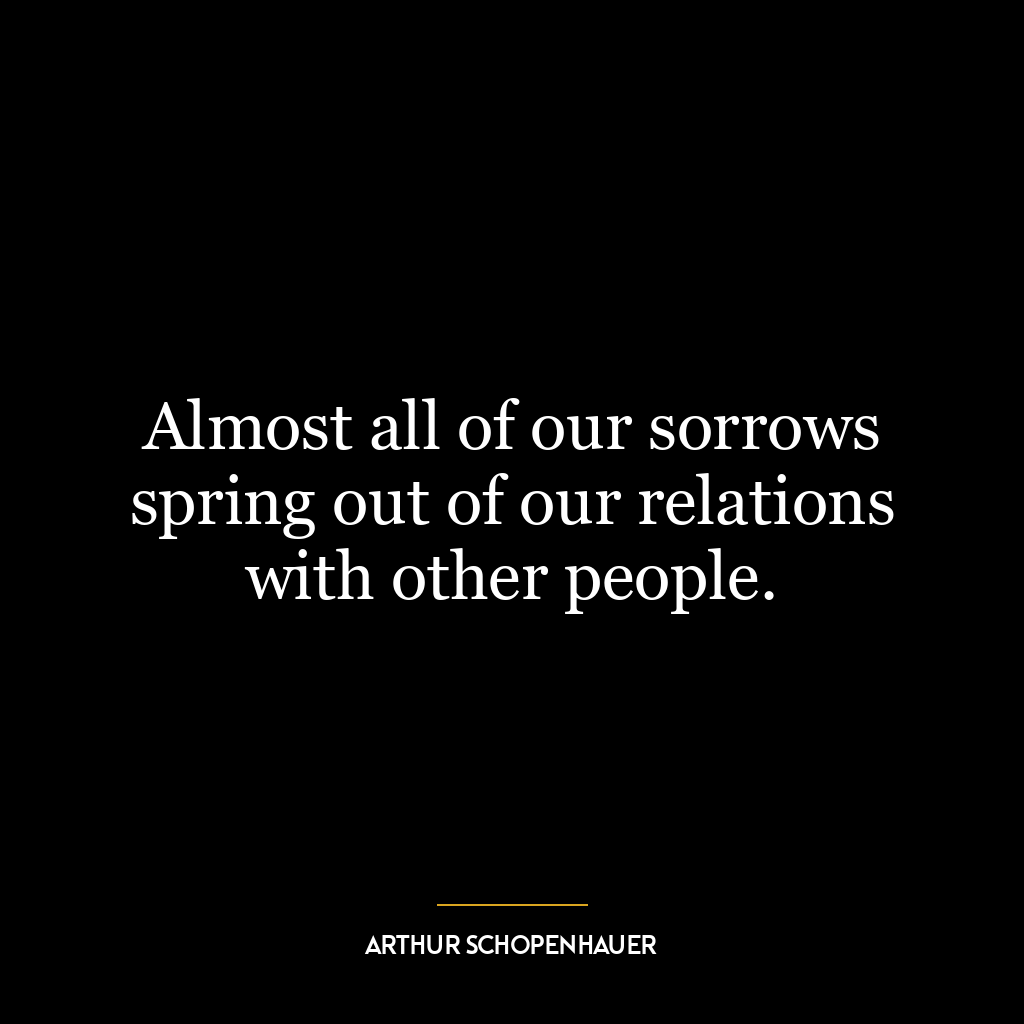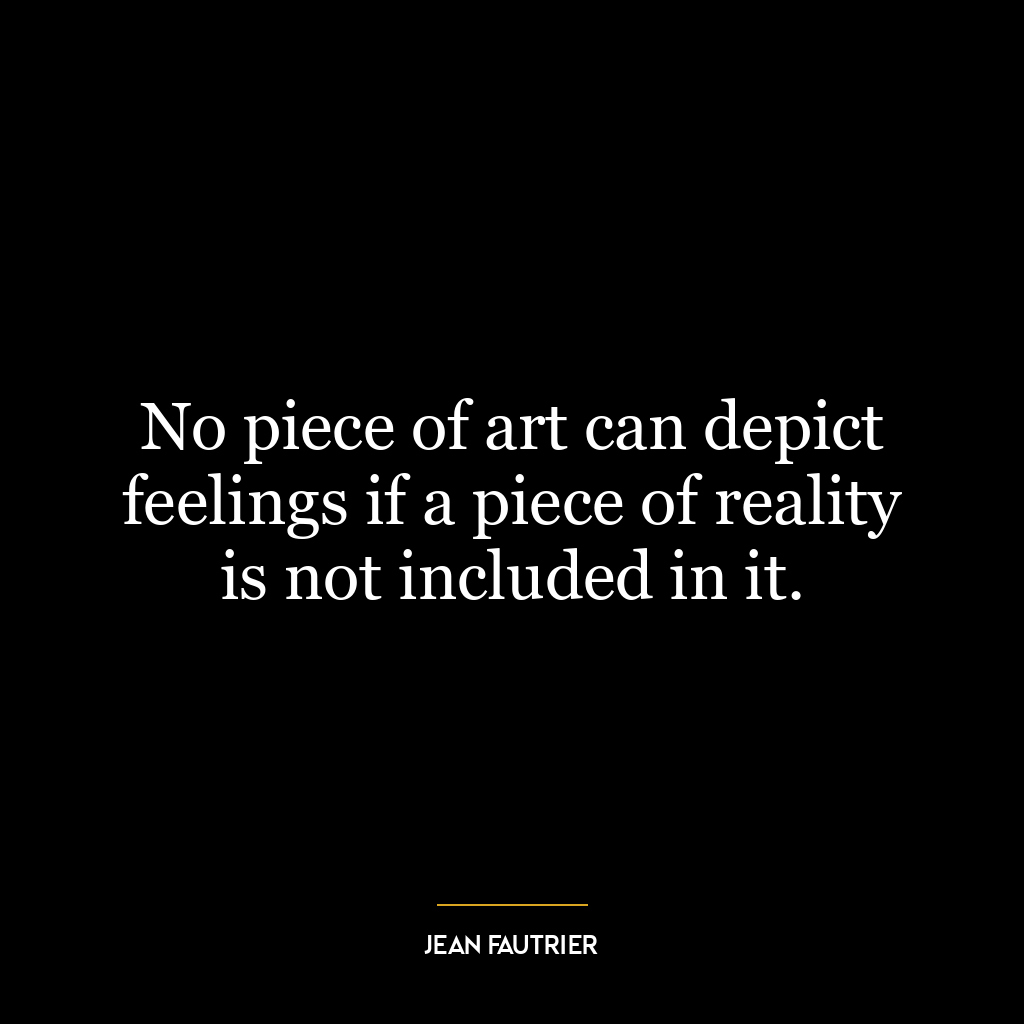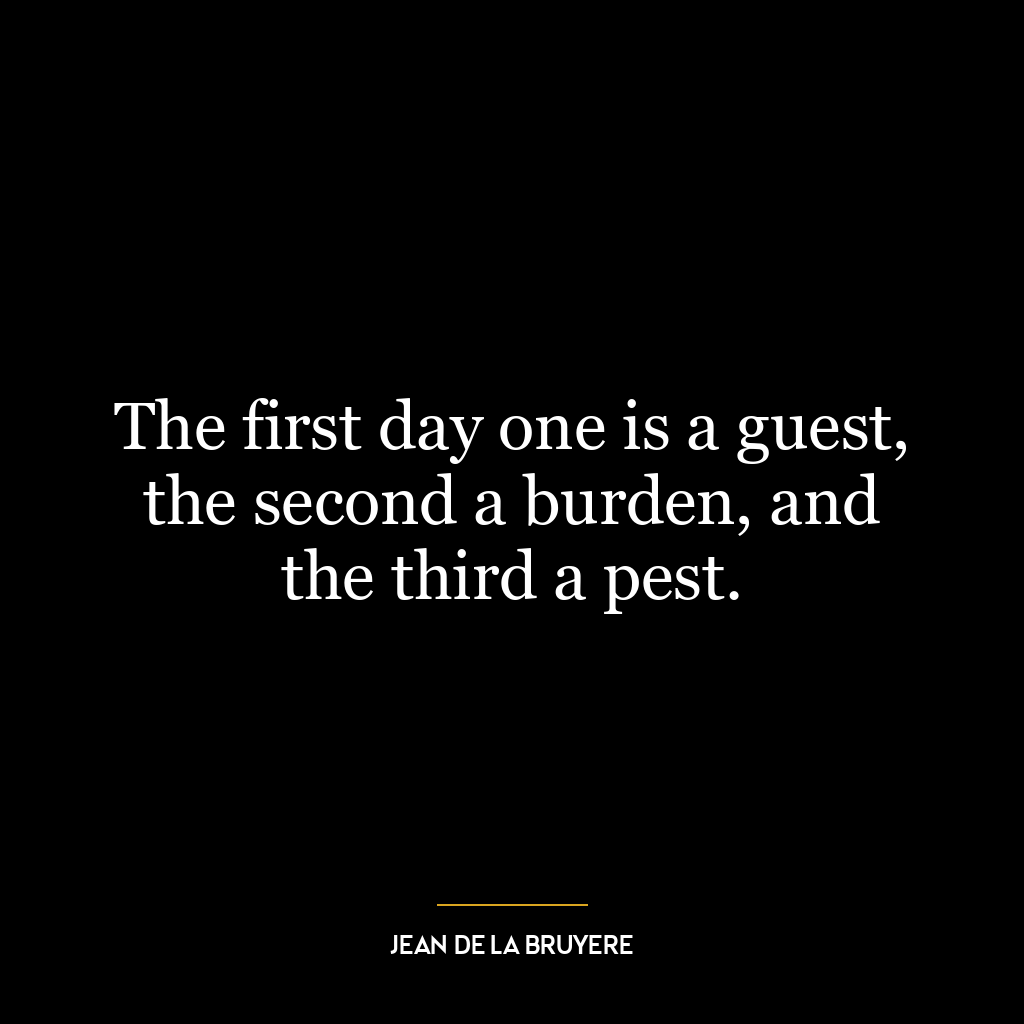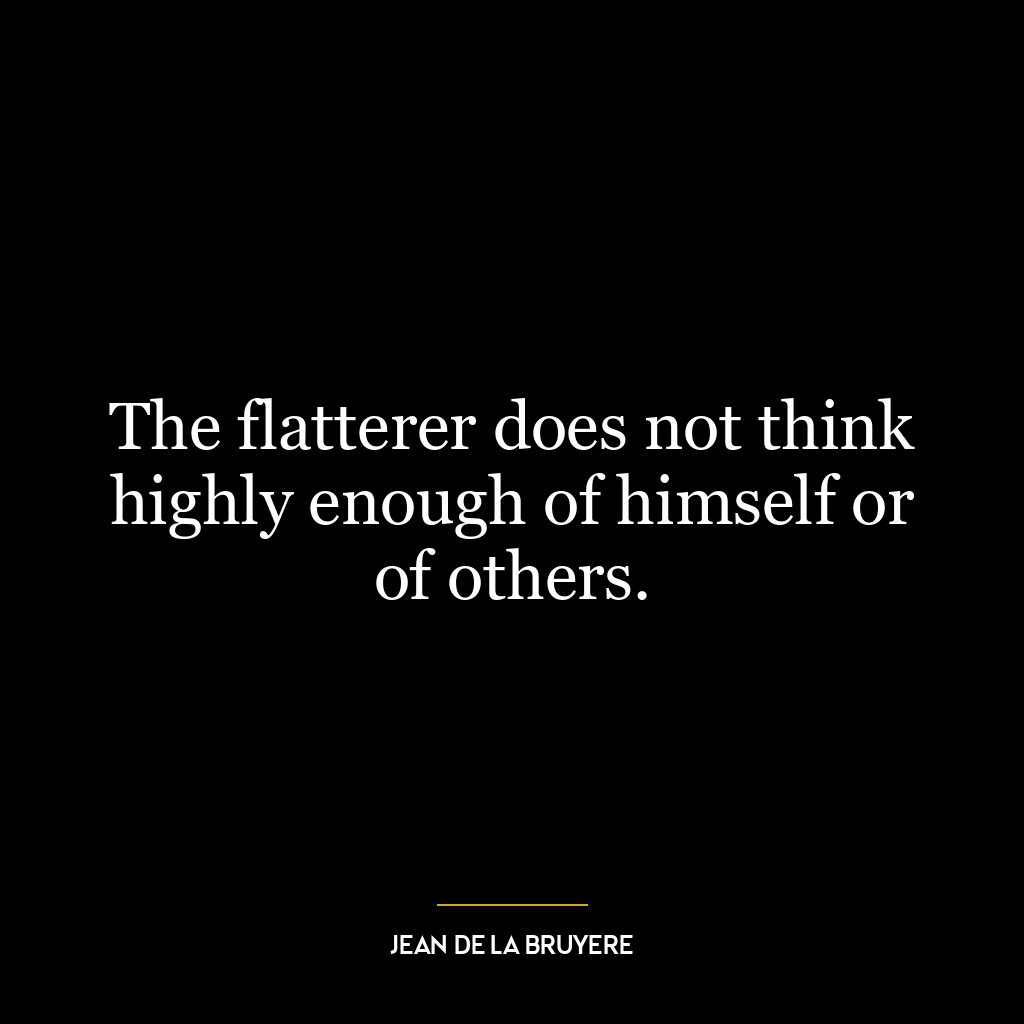Almost all of our sorrows spring out of our relations with other people.
This quote suggests that the majority of our emotional distress or unhappiness arises from our interactions and relationships with other people. It implies that we often look externally for happiness or validation, and when our expectations are not met, we experience sorrow. It’s not the people themselves that cause our sorrow, but rather our interpretations, expectations, and reactions to these relationships.
The quote also indicates that our happiness and sorrow are not determined by our circumstances, but by how we relate to others within those circumstances. This is a powerful statement about the human condition and our inherent interdependence.
In the context of today’s world, this quote can be applied in multiple ways. In the age of social media, for example, we often compare ourselves to others, which can lead to feelings of inadequacy or unhappiness. It’s not the existence of social media that causes sorrow, but our relationship with it and the people on it.
In terms of personal development, this quote might suggest that we should focus more on improving our relationships and how we handle them. It could involve setting healthy boundaries, improving communication skills, or learning to manage expectations. Alternatively, it might imply the importance of cultivating inner peace and happiness that is not dependent on others.
Moreover, it might also suggest that we should be careful about who we allow into our lives. If almost all our sorrows come from our relations with other people, then choosing to surround ourselves with positive, supportive individuals could significantly increase our overall happiness and reduce our sorrows.
In conclusion, this quote highlights the significant impact our relationships with others have on our emotions. It encourages introspection and self-improvement in how we manage these relationships to reduce sorrow and increase happiness.















